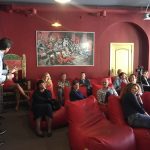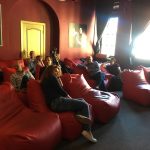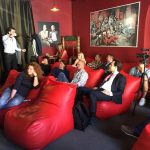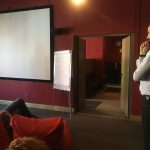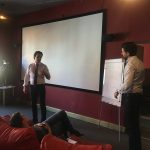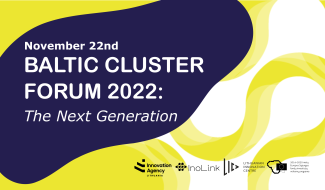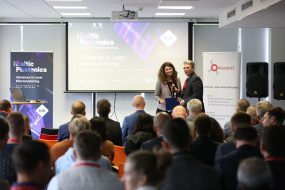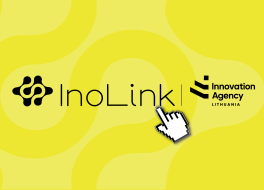Gleb Maltsev: 3 habits for managers pitching at international trade fairs

What are best practices and secrets of effective participation in various international business events and matchmaking sessions? On June 7th, Lithuanian Agency for Science, Innovation and Technology (MITA) together with Lithuanian Innovation Center (LIC) in the framework of InoLink project invited effective communication expert from Estonia Gleb Maltsev to share his insights with Lithuanian clusters and shed some light about how to present and pitch to international audience.
“I was struck by the range and types of companies in each cluster. Everything from ‘smart food’ to the ones in automotive, engineering, plastic, and wellness. I did not know that Lithuanian firms provide the IT backbone for major Swedish banks, nor did I imagine the precision and level of Lithuanian laser technology or microscopes. If I recall correctly they’re even used by research labs at Harvard,” after meeting his audience said co-founder of Fundwise platform G. Maltsev.
Best bet to invest in people
To have what to boast about is great, but to know how to present one’s achievements and ideas is even better. Lithuanian clusters focus more and more on expanding their international presence and partnerships. This means that they more actively participate in various international fairs and matchmaking events and invest their time and money. Return on this investment is important, particularly in ecosystem, where clusters as a form of cooperation are making their first steps in proving its benefits.
“All platitudes aside, the greatest resource you have are the people going to those events. Invest in training them and raising their communication skills to an international level. The bottom line is that if the manager cannot pitch their cause, no amount of rationalization or documentation is going to disguise the fact that they brought no additional partners or business,” suggested G. Maltsev.
3 best practices and their story
G. Maltsev is well known in the international arena for coaching speakers for such massive events as Slush, Latitude59, TechChill and LOGIN. When asked about most common pitching mistakes that executives make, G. Maltsev answered with a story.
“In April 2016, at the heels of an intense one-day pitch workshop, I’ve given an interview on the top 5 pitching mistakes for the LOGIN Fair in Vilnius. Because of the vast amount of founders and execs that had to be trained that day, the rapid-fire interview was conducted in a car, on the way to an airport. We had a mere 5 minutes left until I had to board my flight, and to have a meaningful interview. Because of this, each point became a 30-second pitch. It forced me to condense a day, and a lifetime of work into sound bites that the journalist could publish and his readers would hopefully remember.”
According to G. Maltsev, there are 3 key points that are relevant to any executive running a cluster or a company going to a trade fair. Here they are in his own words:
- Specifics beat buzzwords, the same way that BC Žalgiris dominates in the Euroleague. Yet, going to an international fair with thousands of competing exhibitors, such as the Hannover Messe, and telling stories that stick, without using words like ‘innovative’, ‘unique’, or ‘cutting edge’ is one of the hardest things to do for an executive or an engineer. Those words are used because it’s too damn easy to do it, and because everyone else is doing it. To break away from the crowd, you’d do well to research the facts relevant to your audience, and use those facts to tell a story for their context. Show, don’t tell.
- Show yourself before you pitch yourself. Vulnerability or ‘pažeidžiamumas’, the Lithuanian word I’m still attempting to learn how to pronounce, is at the core of connecting with other human beings at a fair. You need to show what you actually care about. This requires introspection, reflection and asking “why?” around 5 times. Make it personal.
- Practice speaking naturally. The highest form of pitching is an invisible mix of practice and improv. Very few get to the point of becoming good at improv, yet everyone can prepare their 30-second pitch. It takes around 30 to 90 hours of writing and rehearsal time in front of an audience to build new pitching habits. It takes deliberate practice.
About the event
The event “Best practices of Effective Participation in International events” was attended by clusters that are participating in the project Promotion and Development of Innovation Networking (InoLink). This project is coordinated by the Agency for Science, Innovation and Technology (MITA) and funded by the European Fund for Regional Development. InoLink is being implemented together with the Lithuanian Innovation Centre (LIC) and aims to encourage companies to merge into clusters, to increase cluster maturity, to promote their growth and international collaboration.
